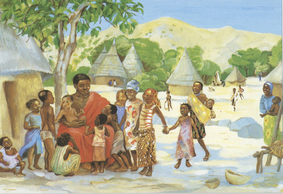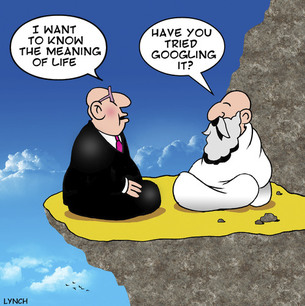|
Read this week's text Mark 9:30-37 here.  This coming Sunday is our version of "Rally Day" - the start of the program year at our church. We call it "Expo" Sunday and we highlight all the different ministry teams that contribute to the worship and work of our congregation. With the start of the program year, I'm drawn to the conversation the disciples were having about "who is the greatest" which I think was more a conversation about "who is going to take over when Jesus dies?" After all, that's what Jesus was trying to explain to them. And although the text says they "didn't understand," it sure seems like they were trying or at least creating a contingency plan. What are we going to do when what we are doing falls apart? Along with figuring out who is going to be in charge, were the disciples also working on their business plan? Were they figuring out their organizational chart? If Pete is CEO, then who will be CFO. And we need someone to cover HR. Do we need a lawyer on retainer? Who will cover the day to day needs, like what we eat and where we will sleep? How many decisions had Jesus made for them? How reliant were they on Jesus for their mission? Did they know where they were headed next? Had they ever created their plans together - as a team? Now the rub for me this Sunday - or the challenge I should say - is that I'm thinking that my sermon is going to be a discussion with the children. So, how do I ask the question of "who is the greatest" to the children of our church? How do I have a discussion about planning the work and worship of our mission with the youngest among us? Here's what I'd like to know from a child's or youth's perspective:
What other questions would you ask children or youth in your church to get them talking about what they see as the work and worship of church?
0 Comments
This week's texts are Mark 8:27-38 and James 3:1-12  The Mark text tell us to "take up our cross." I preached the Matthew version of this text last year. Afterwards, I had several conversations with folks who essentially asked, "But really, what does it mean to take up my cross?" This year in tackling the same words from a different gospel, I'm reminded of the quote from the missionary Jim Eliot, "He is no fool who would choose to lose a thing he cannot keep to buy a thing he could never lose." Twila Paris wrote a song inspired by that quote (an oldy from the 1990's) entitled "He is no fool." In this song, she weaves the stories of the missionary Jim Elliot who was killed by the people to whom he felt called to bring the gospel and the story of Eric Liddell, the runner who refused to run on the Sabbath. Eric's story is recounted in the movie Chariots of Fire. Both of these stories seem extreme perhaps in answer to "what does it mean to take up my cross?" However, they are examples of people who were clear in their own ethic, their convictions and their priorities. Their crosses were both counter cultural and driven by their faith. In contrast to last week's text where Jesus is challenged to let go of his convictions - in particular the Jewish understand of cleanliness and belonging - here we are challenged to hold onto what is most important. So then, what is most important? I remember the scene from City Slickers (again an oldy from the 1990's) where three men from the city go on an adventure vacation to move cattle out west. Billy Crystal plays a man named Mitch. There is a scene where Mitch is talking to a cowboy named Curly about the meaning of life. Curly says the meaning of life is "one thing. If you stick to it, everything else falls into place." Mitch asks, "Yea, but what's the one thing?" Curly says, "that's what you have to find out." Here's the clip. I'm wondering if to take up one's cross is similar to finding that one thing. Jesus had a specific task, a specific calling, a unique calling. But so do we, don't we? We have specific gifts; we live in specific circumstances. What are those circumstances and gifts telling us about our "one thing" or our "cross?" How do the gifts that God has given us and our current circumstances guide us into the choices we make? What are we living our lives for? What are the most important things that drive us? In any congregation, there is the potential of a missionary like Jim Elliot or a runner like Eric Liddell. And most importantly, there are pews full of people asking the same question as Mitch, "what's the meaning of life?" |
Search this blog for a specific text or story:
I am grateful for
|

This work is licensed under a Creative Commons Attribution-NonCommercial-ShareAlike 3.0 Unported License.
